AmIsAre (Verb to be) Testi 1
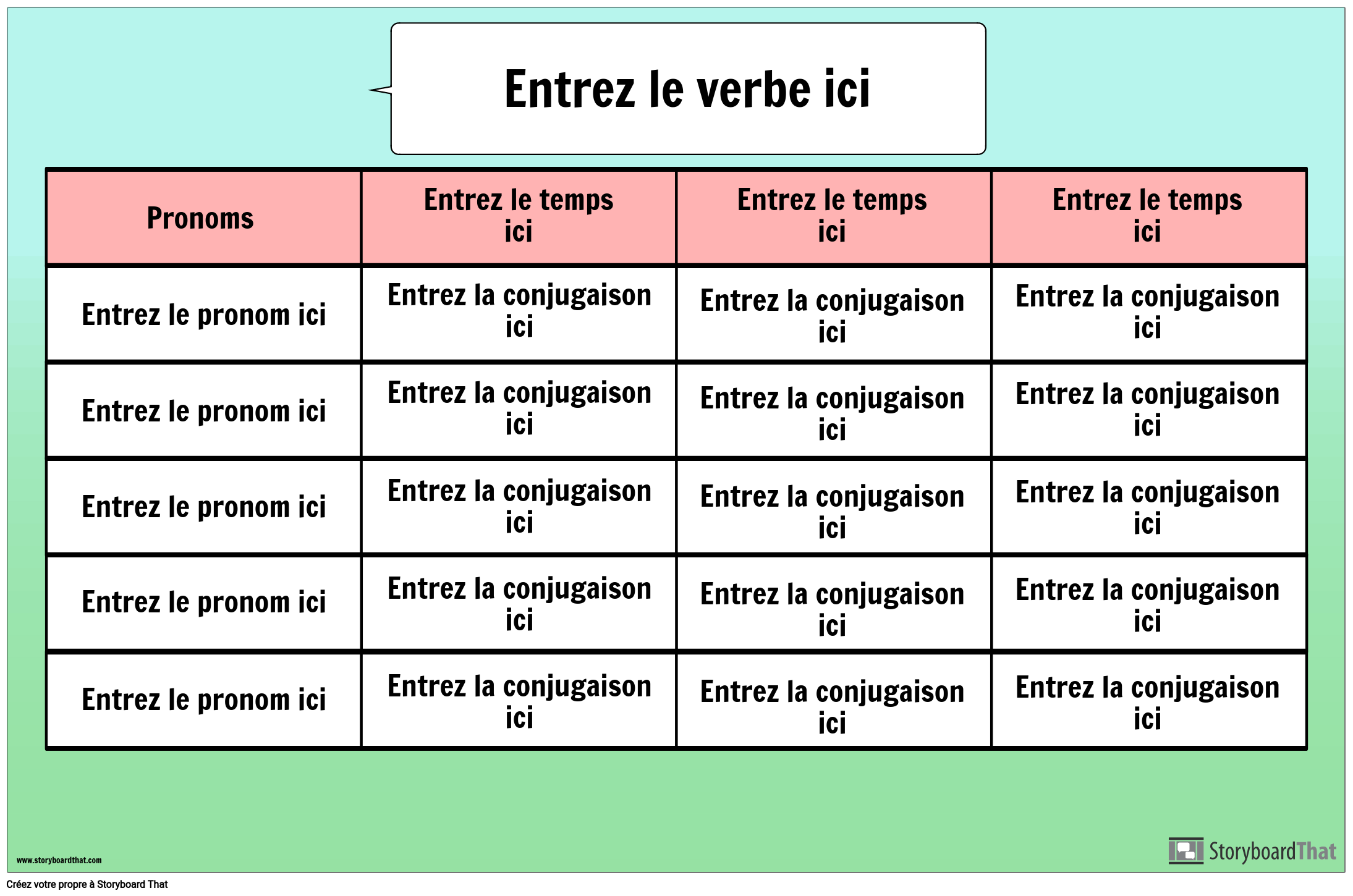
Affiche du Tableau de Conjugaison des Verbes Storyboard
Was and were are both past tenses of the verb to be.The verb be is a tricky one because it is an irregular verb and one that we find ourselves using with great frequency, so it is that much more important that we choose the correct verb for our sentences.. In this post, I want to go over the grammar behind was vs. were, when it's correct to use which one, and give you a few tips to keep.

BE (( am/is/are/was/were)) English teaching materials, English grammar, Learn english
I would have been. you would have been. he would have been. we would have been. you would have been. they would have been. Past continuous. I would have been be ing. you would have been be ing.
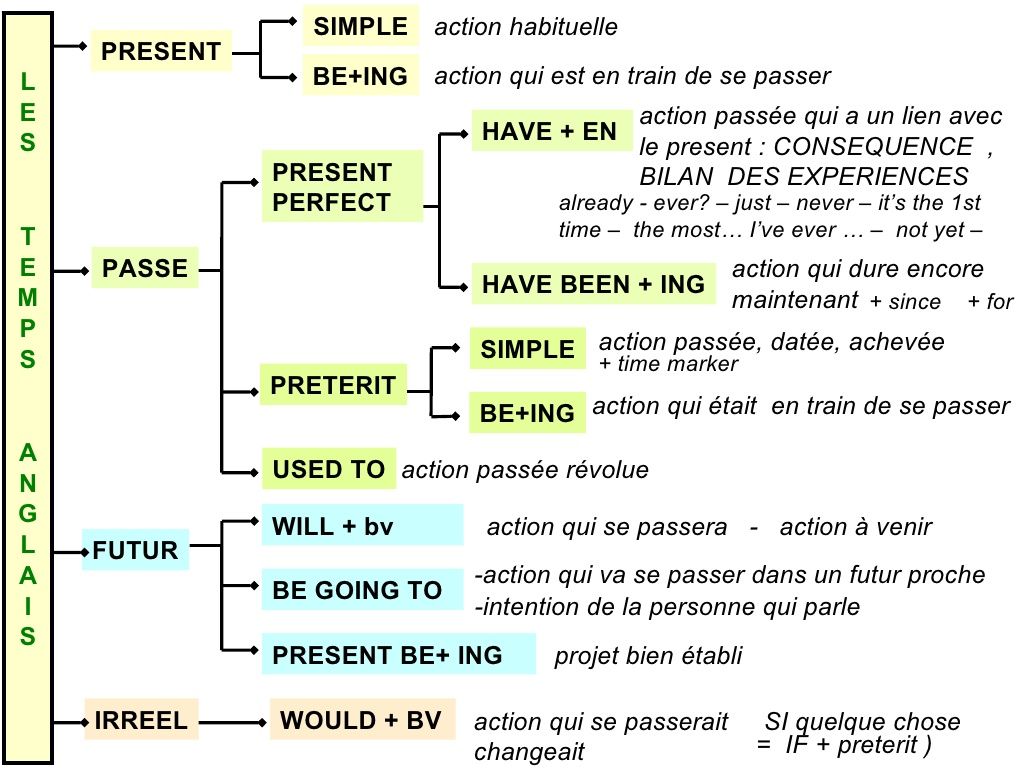
Les Temps en Anglais Voici notre récapitulatif Conjugaison
Statements with a subjunctive mood often start with "if.". The conjugation of the verb "to be" in the subjunctive mood is as follows: I were. You were. She/he/it were. We were. You (all) were. They were. It might seem strange to read the words "I were" or "it were," but this is correct if the statement that follows is.

SOLUTION Exercice conjugaison anglais was were1 Studypool
b) Were - "Were" is used because the subject "The children" is plural. b) Were - "Were" is used because "a lot of people" is considered a plural noun phrase. a) Was - "Was" is used because the subject "The weather" is singular. a) Was - "Was" is used because "it" is a singular pronoun referring to the.
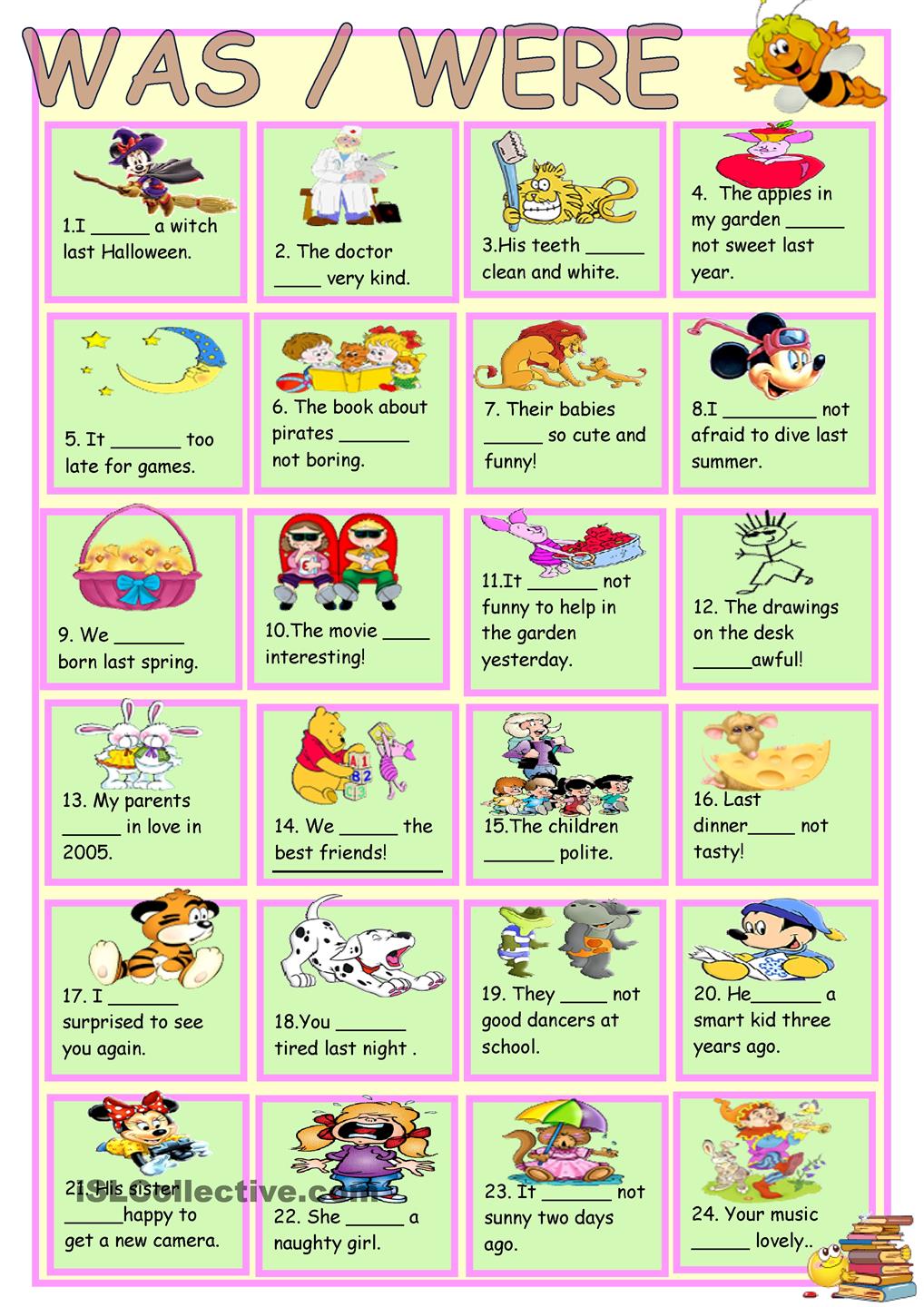
Be au passé myteacher.fr apprendre l'anglais par l'image et le jeu
Exercises : elementary 01. To be: pronouns and forms. Past simple: was / were. Was / were - simple past. To be: past simple forms. Past simple: was or were - write. Rewrite the sentences in the past. Negative: was not / wasn't. Negative: short forms - write.

past tense was/were mabe050982
Auxiliaire : have, be Autres formes: be oneself / not be Contractions Publicité Indicative Present I am you are he/she/it is we are you are they are Preterite I was you were he/she/it was we were you were they were Present continuous I am being you are being he/she/it is being we are being you are being
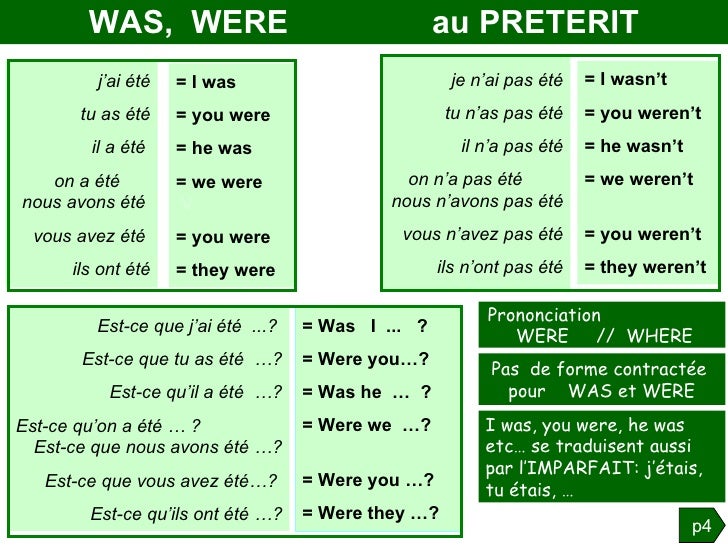
TOP11+ Verbe Etre En Anglais Preterit Images tout
Grammarly Updated on May 8, 2023 Grammar Chances are, you're familiar with one difference between was and were: the fact that was is the first- and third-person singular past tense form of the verb to be, while were is the second-person singular past and the plural past form of to be.

Pin by Paulina on FLE Conjugaison / Futur Learn french, French flashcards, French language lessons
de English Grammar Today Past continuous: form We use was/were + the -ing form of the verb. There are a number of spelling rules for when we make the -ing form of the verb. Past continuous: uses Events happening at a particular time in the past
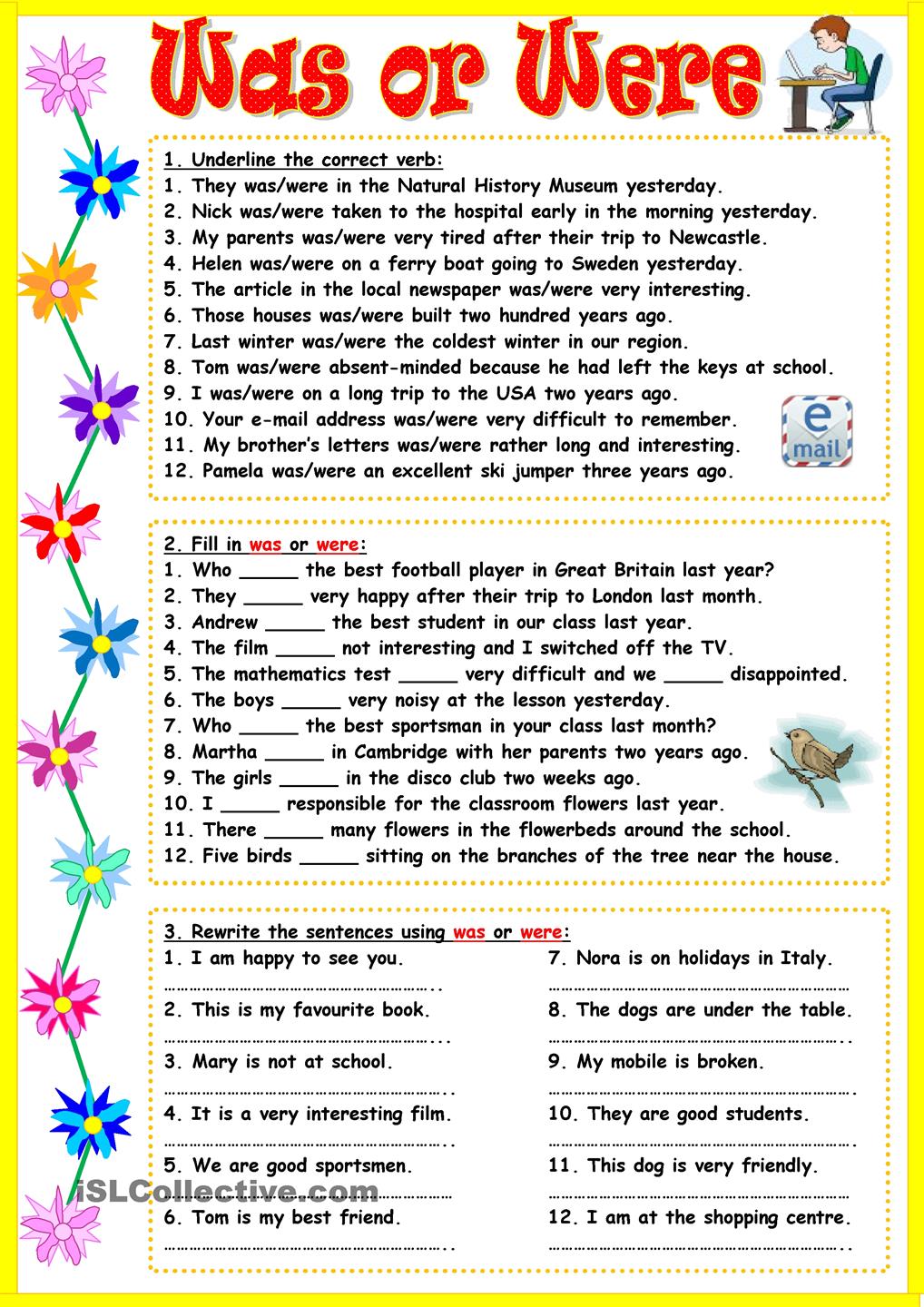
conjugaison de be au passé conjugaison du verbe anglais be Succed
Conjugate was English verb: past tense, participle, present perfect, present continuous, past perfect, gerund. Translate was in context and see was definition. Conjugate the English verb was: indicative, past tense, participle, present perfect, gerund, conjugation models and irregular verbs.

Apprenons le français Les principaux temps et groupes de la conjugaison française
Was / Were Games. Try our interactive games to practice To Be in the past tense: Was and Were in Short Answers. To Be in the Past Tense (mixed). I hope this was useful for you. A chart showing how to use Was and Were (To Be in the past tense) in affirmative and negative sentences and questions. Also games to practice Was vs Were.

French Les verbes conjugués au présent French verbs, Alphabetical order and Fle
Conjugating To Be To be conjugates into five different forms: Present I am You are He/She/It is We are You are They are Past simple

groupe A1 Alliance2016 Conjugaison des verbes réguliers
French conjugation: the best way to learn how to conjugate a French verb. Write the infinitive or a conjugated form and the French Conjugator will provide you a list of all the verb tenses and persons: future, participle, present, subjunctive, auxiliary verb.

Waswere Interactive worksheet in 2020 English as a second language, English as a second
Do you know when to use "was" and when to use "were"? It seems simple until you start dreaming about all the possibilities. Learn their uses here!
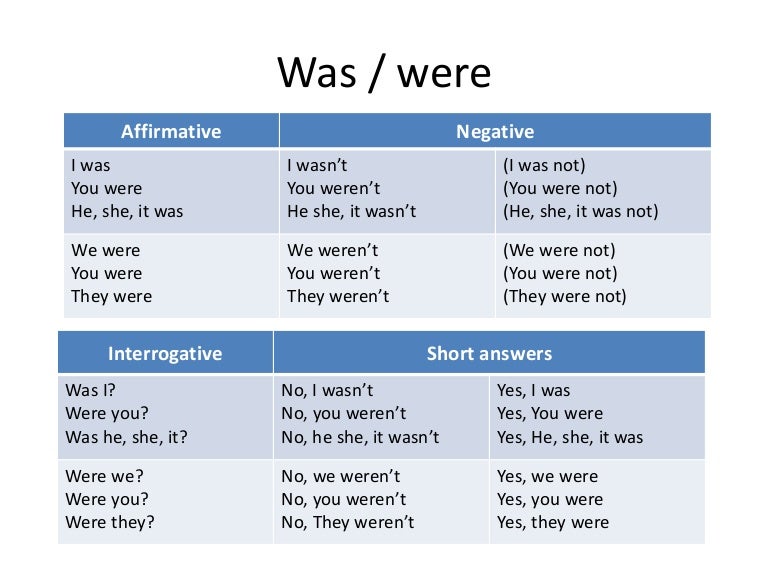
Was, were
If you want to consider "the park and the surrounding area" as a whole entity then I'd say use - "the park along with the surrounding area". This is when the subject agrees with the verb "was". If not, then you have to use "were" because "the park" AND "the surrounding area" are two things. Grammarly is correct.
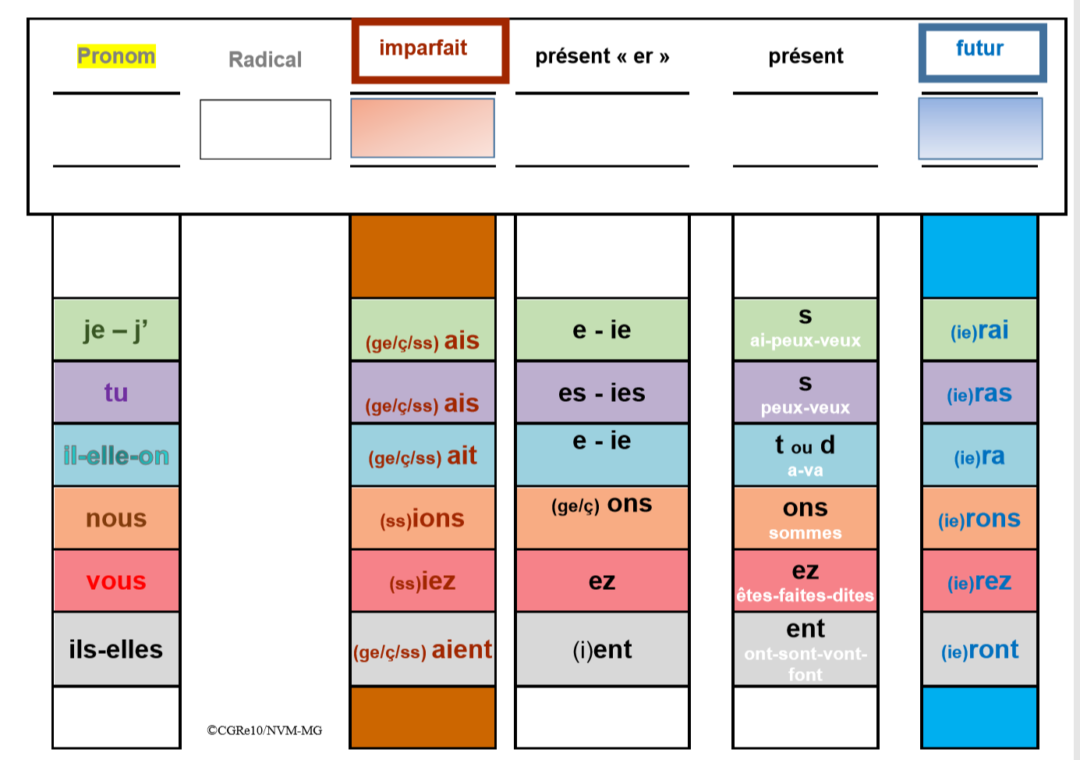
conjugaison jardin des verbes 7h8h Ateliers dys
When conjugating a verb in any tense, the form of the verb will change depending on the pronoun used. Here are the pronouns used in English: First-person singular - I. Second person singular - you. Third person singular - he, she, they. First-person plural - we. Second person plural - you.

'Was or Were' Grammar Guide & Practice English activities, Guided practice, English lessons
La règle was/were est très simple, elle dépend juste des pronoms personnels qui précédent l'auxiliaire. I - Was You - Were He, She, It - Was We - Were You - Were They - Were Example : - I was born to make you happy. Débutants Tweeter Partager